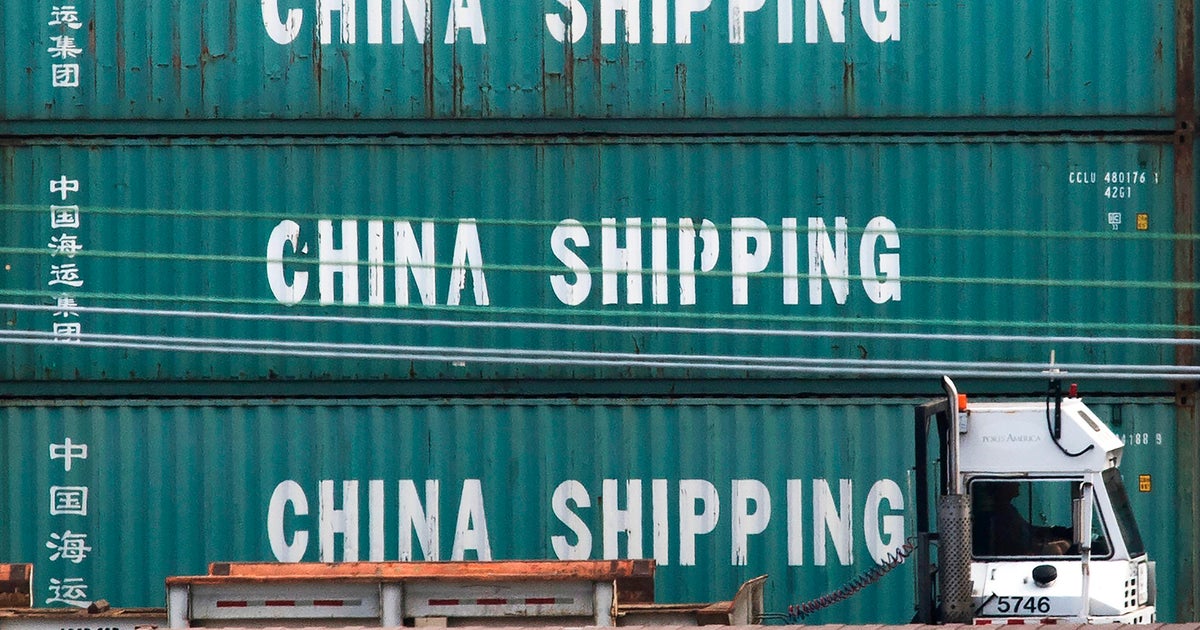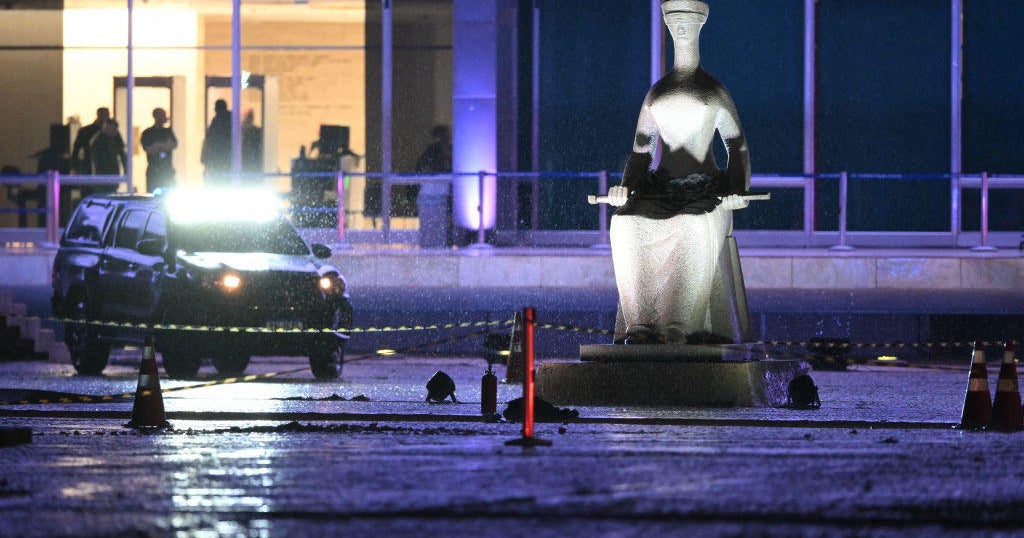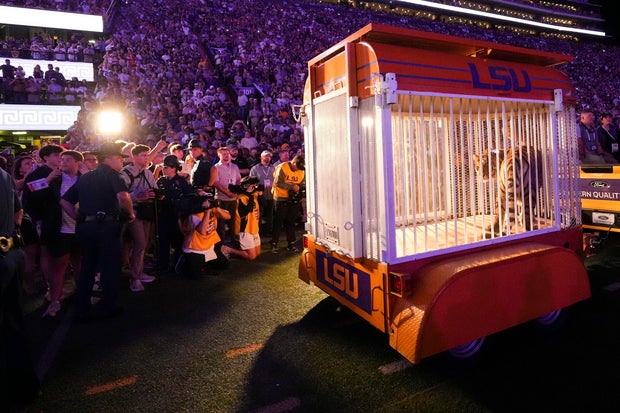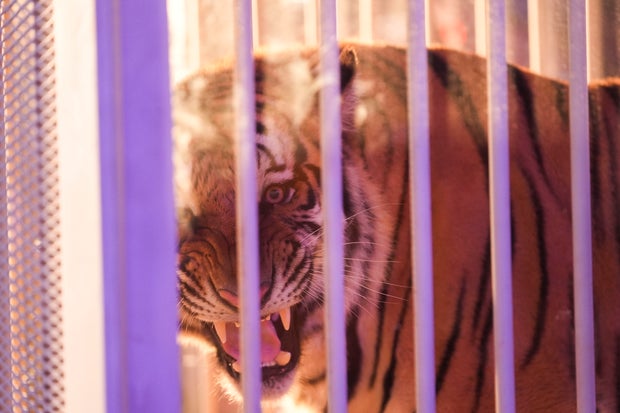CBS News
More escaped monkeys captured and given Fruit Loops as lawmaker slams lab’s “painful and deadly experiments”

Two more monkeys that escaped last week from a South Carolina research facility were recaptured Tuesday, according to the facility’s CEO, bringing the total number of primates caught and returned to 32 since the incident. Eleven monkeys are still on the loose.
Greg Westergaard, the chief executive officer of the facility Alpha Genesis, in Yemassee, South Carolina, told CBS News that both of the newly-trapped monkeys were healthy and enjoying a meal of peanut butter and jelly sandwiches. Fruit Loops were also “planned for dessert,” Westergaard said.
He added none of the monkeys, rhesus macaque primates used for biomedical study, showed signs of “ill effects from their adventure” and all continued “to do well.”
But Westergaard’s company has come under scrutiny from a federal lawmaker who criticized the lab for negligence and alleged the laboratory has performed harmful experiments on monkeys for years. Rep. Nancy Mace, whose South Carolina jurisdiction includes Yemassee, penned a letter to animal welfare officials at the National Institutes of Health and the U.S. Department of Agriculture, raising concerns about operations at the research facility in light of the monkeys’ escape.
“We are writing with urgent concerns regarding federal oversight of Alpha Genesis, a company which manages a nonhuman primate breeding and experimentation laboratory located in my Congressional district,” Mace wrote in the letter. She said the laboratory received $19 million in federal funding just this year “to breed, confine and experiment on primates at its facilities in South Carolina.”
Mace said that records show the primates are subjected to “painful and deadly experiments.”
“While in the care of Alpha Genesis, monkeys have frozen to death, died of dehydration, and been killed by other distressed primates,” Mace wrote in the letter, while requesting a briefing on the situation.
Mace pointed out that monkeys have escaped before from Alpha Genesis, and said federal inspectors had cited the company for violating the Animal Welfare Act as recently as September 2022. CBS News has asked Alpha Genesis to respond to Mace’s allegations.
An investigation by CBS affiliate WTOC found that in 2022, Alpha Genesis received eight violations from the U.S. Department of Agriculture, including a housing facilities violation and a veterinary violation.
The report found that the first eight months of 2022, six monkeys were placed in wrong enclosures – one animal was found dead from “trauma caused by the resident animals in the enclosure,” and four animals required subsequent veterinary care
On Wednesday, 43 monkeys being held at the research facility in Yemassee, South Carolina broke loose from their enclosure after a caretaker accidentally failed to secure the gate, Westergaard told CBS News. Of 50 primates inside, only seven stayed behind as the rest of the group proceeded to roam free just outside of the facility property.
Westergaard likened the state of affairs to “a playground situation” and said at the time the animals were “just being goofy monkeys jumping back and forth playing with each other.” Attempts to bait the creatures initially failed, and local police warned residents in the area to secure the doors and windows of their homes to prevent any of the escaped primates from entering.
With 11 of the monkeys still on the loose, Westergaard said Tuesday that recovery crews felt they had developed some solid leads to find the runaways.
“Late this afternoon we spotted a few more monkeys close to the traps, and heard others cooing in the forest,” he told CBS News. “We’ll be back at it before dawn tomorrow and will continue for as long as it takes. We appreciate the continued support from the community, and from the public at large as well.”
CBS News
LSU student arrested over alleged death threat vs. governor who wanted live tiger at game

Baton Rouge, La. — An LSU student has been arrested after, prosecutors say, he made an online threat to kill Louisiana Gov. Jeff Landry, who advocated for bringing a live tiger onto the field as part of a recent college football game.
Landry, a Republican, helped revive the school’s tradition of wheeling a caged Bengal tiger into the stadium before kickoff for the first time in nearly a decade. Animal rights activists protested outside the stadium.
Gerald Herbert / AP
An arrest affidavit says Jackson Pemberton, 21, told state police investigators on Tuesday that he was joking when he posted on social media “I am going to kill you jefflandry,” tagging the governor’s account on X, media outlets reported.
Pemberton told investigators he was “upset with the governor’s decision regarding the live tiger that was brought on the LSU football field this previous weekend,” the affidavit said.
Gerald Herbert / AP
Pemberton, of Baton Rouge, was booked into the East Baton Rouge Parish prison on a count of threatening a public official, media outlets reported. Jail records didn’t indicate whether he has an attorney or if bond had been set.
In a statement Wednesday, an LSU spokesperson said the university was aware of the student’s arrest.
“We take any behavior that threatens the safety of individuals or our community very seriously,” the statement reads. “LSU is committed to a respectful, responsible, and safe environment for all.”
CBS News
Can Trump impose tariffs without Congress? It’s complicated, according to experts.

President-elect Trump, who has said he thinks “tariff” is “the most beautiful word in the dictionary,” has proposed a variety of taxes on goods imported from other countries.
His aim is to deter American companies from relying on parts and goods from overseas, including from China, by making it more expensive for them to do so.
He’s also claimed that he doesn’t need Congress’ support to impose the tariffs he’s floated. The reality is more complicated, according to economists and foreign trade experts.
What has Trump proposed?
On the campaign trail, Trump proposed tariffs of between 60% and 100% on Chinese goods. He’s offered few additional details, however, such as whether the tariffs would apply to all goods, or just certain categories of products.
He’s also proposed a sweeping tariff policy including a universal tax of between 10% to 20% on all imports, and has promised reciprocal tariffs on any country that imposes tariffs on American-made goods.
Can Trump unilaterally impose tariffs?
Once he takes office, President-elect Trump has a few different pathways through which he could try to implement the types of tariffs he has proposed.
The U.S. Constitution gives Congress the authority to impose tariffs in Article 1, Section 8, which states that “The Congress shall have Power To lay and collect Taxes, Duties…To regulate Commerce with foreign Nations.” But Congress can also selectively delegate tariff-setting authority to the President, which it has done for decades.
Trump, in his first term as president from 2017-2021, made use of this presidential authority to increase tariffs: Duties paid on U.S. imports doubled from roughly $37 billion in 2015 to $74 billion in 2020, according to the Congressional Research Service.
“Looking at his previous four years in office, he seems to believe he has the authority to impose tariffs,” said Jake Colvin, president of the National Foreign Trade Council, a group dedicated to advocating for U.S. companies in international commerce. “If they decide on day one that they want to use executive authority to put tariffs on Chinese goods, they could probably go ahead and do that.”
Colvin added that it will be important for the incoming Trump administration to provide businesses with more specifics so that companies can plan accordingly. “A lot has been proposed in the course of the campaign, so it’s important for the administration to give a signal about the path it intends to pursue, for clarity and planning purposes for American businesses,” he said.
Presidential authority to impose tariffs
The president has authority to impose a range of trade restrictions on foreign nations, said Inu Manak, a trade policy fellow at the Council on Foreign Relations.
“It seems pretty clear that he would pursue tariffs soon after taking office. During his last term, tariffs were a tool of choice in the trade war against China and against allies, too. So I believe that is a strategy he’ll replicate in his next term,” Manak told CBS MoneyWatch.
Manak added that he would likely be able to do so without support from Congress. “The president has quite a bit of discretion to do what he wants,” she said.
Legal powers at Trump’s disposal include Section 301 of the Trade Act of 1974, under which the president may impose retaliatory tariffs when “an act policy, or practice of a foreign country … violates, or is inconsistent with, the provisions of, or otherwise denies benefits to the United States under, any trade agreement, or … is unjustifiable and burdens or restricts United States commerce.”
Trump has already relied on Section 301 to impose tariffs on China throughout 2018 and 2019, and he could, simply, expand upon existing tariff actions he’s already taken, according to Manak.
“That would require no action from Congress, because they are already in place,” she said.
In his previous term as president, he also made use of Section 232 of the Trade Expansion Act of 1962 to impose tariffs on steel and aluminum imports. It grants the president the authority to adjust imports, including by imposing tariffs, when they are found to be a threat to national security.
Threats to national security
There’s also the International Emergency Economic Powers Act (IEEPA), which hasn’t been used to restrict trade since President Nixon was in office, from 1969 until his resignation in 1974.
The act says “Any authority granted to the President by … this title may be exercised to deal with any unusual and extraordinary threat … to the national security, foreign policy, or economy of the United States, if the President declares a national emergency with respect to such threat.”
“The authorities granted to the President … may only be exercised to deal with an unusual and extraordinary threat with respect to which a national emergency …” it adds in part.
In other words, in order to use IEEPA to impose tariffs, Trump would have to declare a national emergency through an executive order, claiming that the U.S.’s trading partners pose an unusual and extraordinary threat.
Alan Wm. Wolff, former deputy director-general of the World Trade Organization and a distinguished visiting fellow at the Peterson Institute for International Economics (PIIE), is skeptical that Trump has the authority to impose sweeping tariffs under IEEPA.
“Can it be used against trade with all countries, our allies and friends in Europe and Asia, in the Americas, not to mention the poorest countries in Africa? That would simply be too large a power grab to have been within what Congress intended in this statute,” he wrote in a recent blog post.
Discrimination against U.S. commerce
Manak said that Section 338 of the Tariff Act of 1930 could also conceivably give the president the authority to unilaterally raise tariffs.
The rarely used act allows the president to impose duties of up to 50% of a product’s value, and is triggered when a president finds that a foreign country has imposed an unreasonable charge on, or discriminated against U.S. commerce.
Typically, though, the finding has to come from the U.S. International Trade Commission (ITC). “But the statute’s language is ambiguous in terms of what that would look like, and I would imagine he could pursue this without a final finding from ITC, or pursue it while a finding is being made,” she said.
Impact of tariffs on consumer prices
Some companies have already said they’re aiming to move production out of China to avoid Trump’s proposed tariffs.
Shoemaker Steve Madden, for example, says it plans to import fewer goods made in China to the U.S., and replace them with items made in other countries.
If imposed, the proposed tariffs on imports could lead to consumers losing between $46 billion and $78 billion in spending power each year on products including apparel, toys, furniture, household appliances, footwear and travel goods, according to the National Retail Federation.
By another estimate, a 20% general tariff on all imported goods, combined with a 60% tariff on goods imported from China, would cost the typical U.S. households more than $2,600 a year. If Trump imposes a 10% tariff across the board instead, that would cost families $1,700 more, according to PIIE.
More concrete data on what the cost will be on consumers may soon be available, as experts expect Trump’s proposed tariffs to be implemented rather quickly.
“We would imagine that within a few months of him taking office, we would see the first tranche of tariffs taking effect,” Manak said.
CBS News
Man kills self in explosions outside Brazil’s Supreme Court

A man who failed in an attempt to break into Brazil’s Supreme Court killed himself in explosions outside the building Wednesday that forced justices and staff to evacuate, authorities said.
The two strong blasts were heard about 7:30 p.m. after the day’s session finished and all the justices and staff left the building safely, Brazil’s Supreme Court said in a statement.
Local firefighters confirmed one man died at the scene in the capital Brasilia, but did not identify him.
EVARISTO SA/AFP via Getty Images
Celina Leão, the lieutenant governor of Brazil’s federal district, said the suspect had earlier detonated explosives in a car in a Congress parking lot, which did not cause injuries.
“His first action was to explode the car. Then he approached the Supreme Court and tried to get in the building. He failed and then there were the other explosions,” Leão said in a news conference.
Local media reported that the car that exploded belonged to a member of Brazil’s Liberal Party, the same of former President Jair Bolsonaro. Leão said only investigations will determine whether the owner of the car is the same man who died in the blasts.
Leão recommended that Congress be closed Thursday to avoid new risks. Brazil’s Senate heeded her call and the lower house will be shut until noon, speaker Arthur Lira said.
“It could have been a lone wolf, like others we’ve seen around the world,” Leão said in a news conference. “We are considering it as a suicide because there was only one victim. But investigations will show if that was indeed the case.”
Leão added only forensics will be able to identify the body, which remained outside the Supreme Court for three hours after the blasts.
The blasts outside the Supreme Court took place about 20 seconds apart in Brasilia’s Three Powers Plaza, where Brazil’s main government buildings, including the Supreme Court, Congress and presidential palace, are located.
President Luiz Inácio Lula da Silva was not in the neighboring presidential palace at the time, spokesman José Chrispiniano said.
Police blocked all access to the area and the presidential security bureau was conducting a sweep of the grounds around the presidential palace.
Brazil’s federal police said it is investigating and did not provide a motive.
The Supreme Court in recent years has become a target for threats by far-right groups and supporters of Bolsonaro’s due to its crackdown on the spread of false information. In particular, Justice Alexandre de Moraes has been a focus for their ire.
Lula’s spokesman said that late on Wednesday the leftist leader was gathering at the presidential residence with federal police chief Andrei Rodrigues, and Supreme Court Justices de Moraes and Cristiano Zanin.









